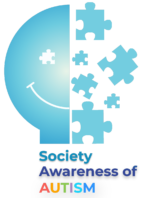
Studies and research provide evidence that getting kids assessed for ASD at or before preschool age, as early as 2 or 3 years can help them significantly to obtain an early intervention in order to acquire the social skills and behaviors to help them interact effectively with their peers and society. It also helps to understand and unlock their potential in other intellectual areas.
There are no specific medical tests such as blood tests to diagnose the disorder. Doctors look at the child’s developmental history and behavior to make a diagnosis.
Parents, family members, or other caregivers of children on the autism spectrum are often the first to notice delays in the usual childhood developmental goals such as speech, eye contact, play with other children, or social interactions.
Sometimes autism goes unnoticed or undiagnosed in both children and adults, especially when symptoms are mild or when the person has other disabilities or health problems. In some cases, the presence of other medical conditions such as apraxia makes autism difficult to recognize. As a result, ASDs may go undetected for years and may only be diagnosed during an educational impasse or a life crisis which puts a person in contact with professionals able to recognize the disorder.
Medical professionals use the latest edition of the Diagnostic and Statistical Manual of Mental Disorders (DSM-5-TR) to evaluate autism spectrum disorder and the related social communication disorder (SCD). Autism Spectrum Disorder (ASD) is diagnosed and treated based on a combination of specific behaviors, communication delays, and/or developmental disabilities.
Autism lies on a spectrum in its severity and symptoms. Early and careful identification can greatly improve the chances of optimal outcomes through appropriate educational supports, treatments, and interventions early on in the intervention process.
